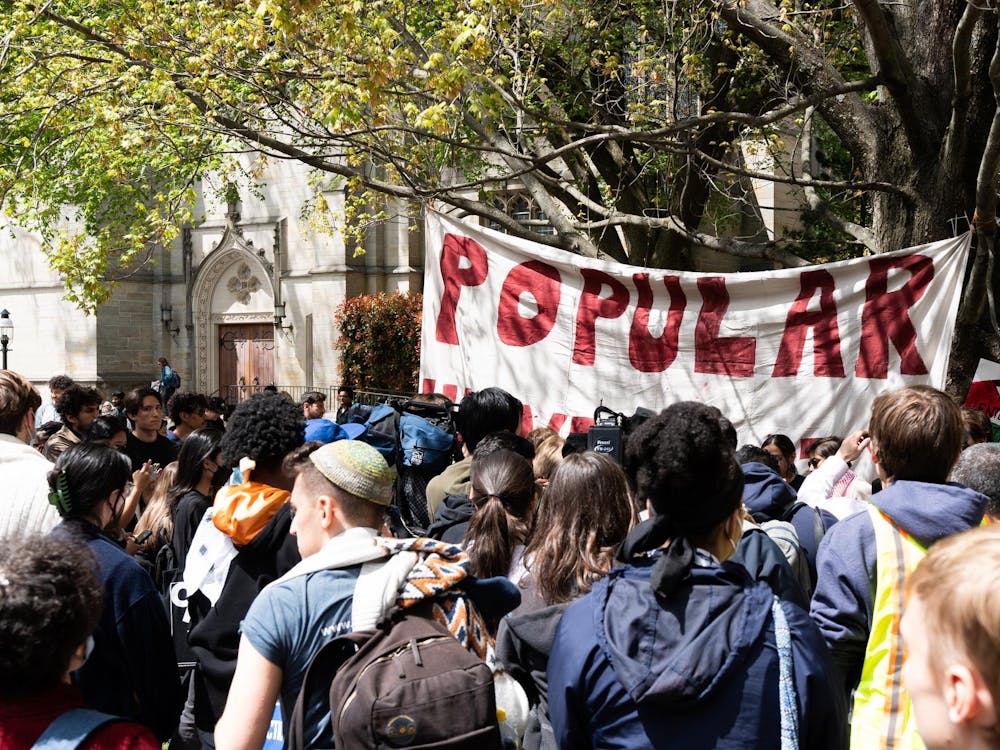A year and a half after the last referendum on the Honor Committee failed to reach threshold limitations, it is time for a concrete change in policy. Each of the four referenda on the ballot this election cycle proposes an important change to the Constitution of the Honor System. While the language of these referenda could be more specific, the proposals represent an honest effort to reform a dangerously flawed honor system, and we urge students to vote for them.
Referendum 1 changes the mandatory minimum punishment for first and second violations of the University Honor Code to allow for a punishment that better fits the crime. The disciplinary probation included as the new minimum for a first offense is a serious measure that remains on a student’s record indefinitely, is required to be disclosed on many internal University applications, and is requested by many potential employers. Without interrupting a student’s course of study, which could have disproportionate financial and mental health consequences, the proposed reform allows the committee to maintain a serious standard for punishment.
Referendum 2 requires that two pieces of evidence be presented in order to bring a student's case to a hearing. Given the admissibility of verbal testimony, electronic records, and written materials as evidence, this measure will not restrict the availability of evidence for convictions with a high degree of certainty. It will, however, require that the case against an accused student be airtight enough to include information from multiple sources to corroborate one another. For this reason, it represents a clear improvement from the current policy, and should be supported with little dissent.
While the Honor Committee currently takes favorable instructor testimony into account when making decisions, recent revelations have shown that this does not always affect the verdict rendered. Referendum 3 requires that the Honor Committee abide by instructor assurances that disputed activities were not in violation of course policy, ensuring that an undue burden is not placed on students to adjudicate differences between presented expectations and the Honor Code. In reality, course policy is often different from the the Honor Code, and this change will ensure that students are not punished in the event of such a divergence. Concerns about increased pressure placed on professors is unwarranted; these faculty members already provide testimony to the committee, likely with the expectation that it will be taken into serious consideration. A formalization of the role this testimony will play is a welcome addition to the Constitution.
Finally, Referendum 4 requires the Honor Committee to disclose a student’s status as the accused party or witness at first contact. As perhaps the most common sense reform of the referendum, the change eliminates undue emotional and mental stress associated with the current system of withholding information to retain control over the process. In the opinion of the Board, no small amount of control is worth the perpetuation of stress levels that raise concerns about students’ mental health.
This reform is a step in the right direction to ensure that the Honor Committee is not a source of fear for students on campus. It is time for change. The Board urges students to vote “yes” on all four components of the Honor Code referendum. Voting begins at 12 p.m. EST on Tuesday, Dec. 12.
Signed,
Emily Erdos '19
Sam Garfinkle '19
Crystal Liu '19
Sebastian Quiroz '20
Ashley Reed '18

Grace Rehaut '18
Sarah Sakha '18
Nicholas Wu '18
Connor Pfeiffer '18 recused himself from the writing of this editorial.








